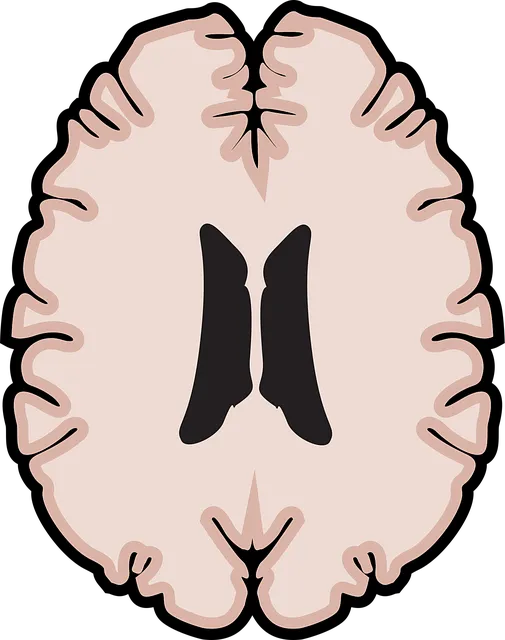Kaiser Permanente in Arvada offers diverse mental wellness programs evaluated through a comprehensive framework. This includes quantitative metrics like service utilization rates and qualitative insights from client feedback, focusing on participant outcomes, reach, and community impact. By integrating these perspectives, Kaiser Permanente refines its Mental Wellness Coaching Programs to cater to individual needs and cultural contexts, ensuring services remain accessible and beneficial for the local community. Their evaluation process centers on key indicators like satisfaction, engagement, and symptom improvements, with practices like compassion cultivation showing significant benefits.
Mental wellness program evaluation is a vital aspect of ensuring effective support for community well-being. This article explores comprehensive methods and metrics used in assessing mental health initiatives, highlighting unique approaches taken by Kaiser Permanente in Arvada. We delve into their strategic framework, focusing on key indicators and feedback mechanisms that drive success. Discover how these evaluations impact service delivery, foster growth, and ultimately, contribute to the overall mental wellness of the Arvada community, with a special focus on Kaiser Permanente’s offerings.
- Understanding Mental Wellness Program Evaluation: Methods and Metrics
- Kaiser Permanente's Approach to Mental Health Services in Arvada
- Assessing the Effectiveness: Key Indicators and Feedback Mechanisms
Understanding Mental Wellness Program Evaluation: Methods and Metrics

Evaluating mental wellness programs is a multifaceted process that goes beyond mere satisfaction surveys. It involves examining a wide array of metrics to gauge the effectiveness and impact of initiatives aimed at improving emotional well-being. Kaiser Permanente, known for its comprehensive healthcare services, including mental health support in Arvada, employs a robust Mental Health Policy Analysis and Advocacy framework. This approach delves into various aspects such as participant outcomes, program reach, and community impact.
The evaluation methods span quantitative techniques (like tracking service utilization rates) and qualitative insights (gathered through client feedback sessions or focus groups). By integrating these perspectives, Kaiser Permanente’s Mental Wellness Coaching Programs Development can be refined to better address individual needs and cultural contexts. This holistic evaluation ensures that services remain relevant, accessible, and beneficial to the communities they serve.
Kaiser Permanente's Approach to Mental Health Services in Arvada

Kaiser Permanente, a renowned healthcare organization, has implemented a comprehensive approach to mental health services in Arvada. They recognize the significance of addressing mental wellness alongside physical health, ensuring a holistic care model. Their strategy involves providing accessible and diverse mental health support through various programs tailored to individual needs.
The focus is on promoting positive thinking and mood management techniques, offering counseling services, and fostering an environment that encourages open conversations about mental health. By integrating these initiatives into their healthcare framework, Kaiser Permanente aims to enhance the overall well-being of the Arvada community. This inclusive approach ensures that residents have access to resources that support not just the treatment of mental health issues but also the cultivation of mental wellness.
Assessing the Effectiveness: Key Indicators and Feedback Mechanisms

Evaluating the effectiveness of mental wellness programs is a multifaceted process, crucial for understanding their impact and guiding improvements. At Kaiser Permanente Arvada, key indicators such as participant satisfaction, engagement in services, and self-reported improvements in symptoms like anxiety and depression serve as foundational metrics. These indicators provide insights into whether the program meets its intended goals and resonates with the target audience.
Feedback mechanisms play a vital role in this evaluation process. Regular surveys, individual interviews, and focus groups offer direct input from program participants, allowing for a deeper understanding of their experiences. This feedback not only highlights areas of success but also uncovers potential challenges or aspects that could be enhanced. Incorporating practices like compassion cultivation can lead to notable improvements in self-esteem and anxiety relief, as evidenced by participant testimonials, making it an essential component to measure within these evaluations.
Evaluating mental wellness programs is essential for understanding their impact and identifying areas for improvement. By utilizing various methods and metrics, such as those employed by Kaiser Permanente in Arvada, we can assess the effectiveness of these services. This case study highlights how comprehensive evaluation strategies, including key indicators and feedback mechanisms, can lead to better mental health outcomes. Kaiser Permanente’s approach demonstrates that offering accessible and tailored mental health services in community settings like Arvada does indeed make a significant difference in people’s lives.






